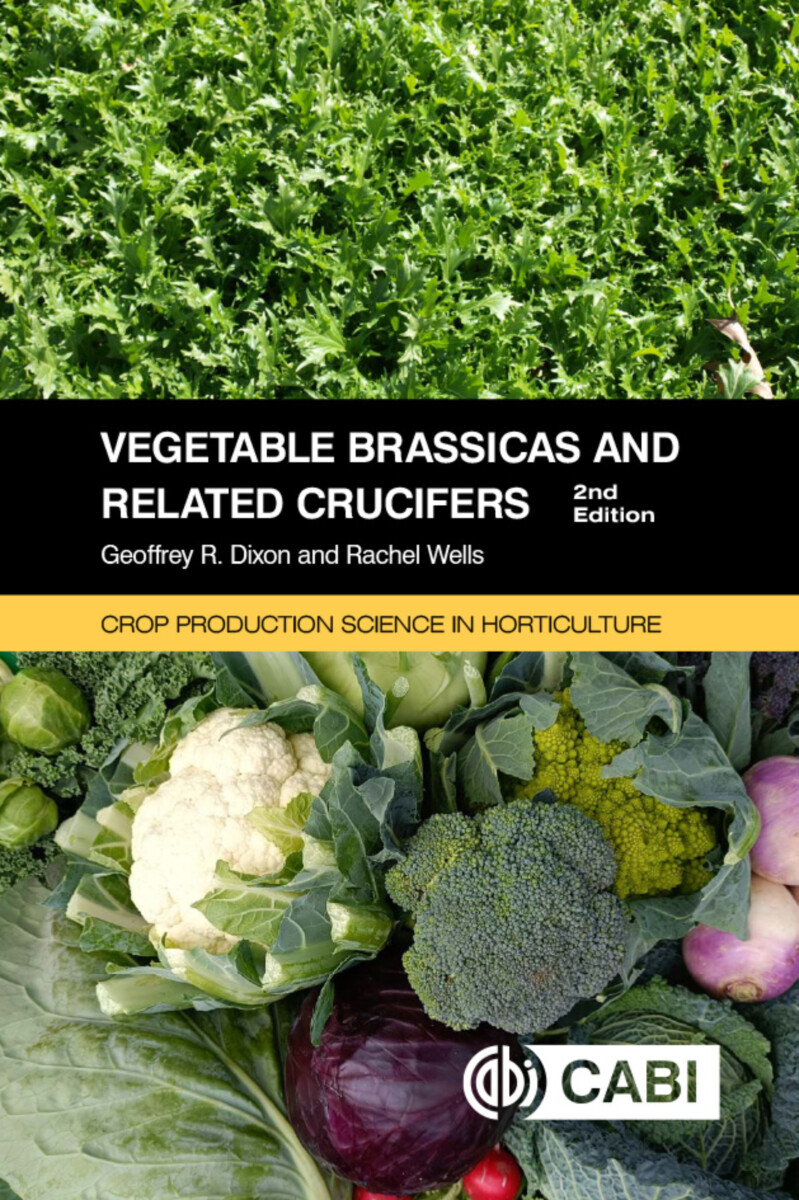Vegetable Brassicas and Related Crucifers Edition 2
- Publisher
CABI - Published
8th January 2024 - ISBN 9781789249156
- Language English
- Pages 448 pp.
- Size 6" x 9"
The Brassica genus contains diverse and economically important species and crops, for example, Brassica oleracea including cauliflower to kohlrabi, B.rapa including pak choi to mizuna, and aquatic crucifers such as watercress. These provide humankind with huge diversities of foods, promoting health and well-being.
This substantially expanded second edition reflects the significant advances in knowledge of plant breeding and crop production which have occurred since publication of the original book in 2006. Embracing new Brassicaceae research and concepts of sustainable and automated crop production, topics include:
- Brassica evolution and transcontinental spread as the basis for crop breeding
- Gene-editing, rapid sequencing, genetic markers and linkage mapping to enable efficient plant breeding
- Seed development, F1 cultivars and rapid maturing crops for profitable cropping
- Environmental impacts on pests, pathogens, crop reliability and quality
- Soil health and fertility as agronomic principles
- Environmental sustainability, biocontrol and integrated pest management
- Vegetable brassicas as nutrient-rich foods for optimal health benefits
Preface
1: Origins and Diversity of Brassica and Its Relatives
2: Breeding, Genetics and Models
3: Seed and Seedling Management
4: Developmental Physiology
5: Crop Agronomy
6: Competitive Ecology and Sustainable Production
7: Pests and Pathogens
8: Postharvest Quality, Value and Marketing
Index
Geoffrey R. Dixon
Geoffrey R. Dixon is owner of GreenGene International (consultancy supplying applied biological knowledge), and Visiting Professor & Research Fellow in the School of Agriculture, Policy & Development, the University of Reading.
Rachel Wells
Rachel Wells is the Project Manager for the BBSRC SLoLa Brassica and Rapeseed And Vegetable Optimization (BRAVO) project. BRAVO is working to understand the gene networks controlling developmental transitions, from vegetative growth, through to flowering and seed production. Rachel's current work involves the utilization of both natural and induced genetic variation and facilitating the translation of research from model species to crops. She promotes research using Brassica genetic resources in collaboration with industry, research institutes, and academia. Rachel's personal research interest is in Brassica pests with a focus on cabbage stem flea beetle.


